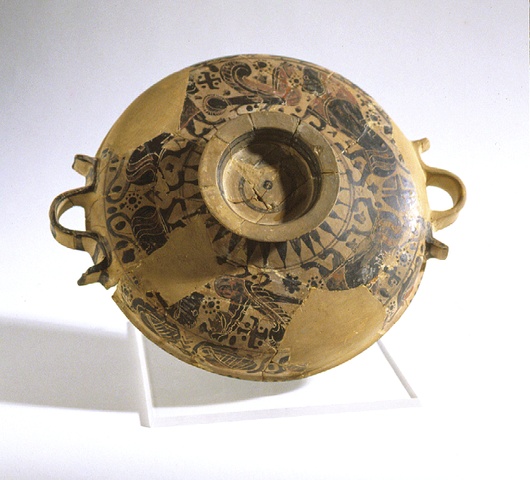The role of
materiality in
past & present
human life-worlds
Welcome to the webpage of the Faculty of Arts signature area ‘The Future of the Past’.
The Future of the Past was formed in March 2020 and constitutes a research network focused on the materiality of human life-worlds. On this site you will find information, news, event announcements on researchers and research projects participating in this network, as well as contact information.
The focus of the Future of the Past network is the role of materiality in past and present human life-worlds. Humans and their material environment have their own life cycles and rhythms, yet each shapes the other. The study of people and the materiality of their world therefore requires a multi-scalar perspective in which we study the temporalities of human action through the lens of its dynamic interaction with the material environment.

Many scholars incorporate a ‘material culture’ perspective in their research. At the initiative of the archaeologists in History and Classics, as well as in Anthropology, we are seeking to establish a network where this diverse group of scholars can easily interact. Such an initiative would be unique in Canada. It would also be the first Arts signature area to have a historical perspective. The goal of our proposal is to establish and foster a research ‘hub’ that brings together these scholars at regular intervals in order to facilitate research engagement, connections and collaborations. We intend to name it the ‘Materiality in the Past and Present Research Initiative’ or MPPRI.
Major questions we wish to address are: how do people study the physical remains of the past in the present and for the future? How do they present them in museums, art institutions, and elsewhere? How do people perceive, construct, and manipulate the materiality of the past in their contemporary world and what were and are the supporting narratives on how we got here? Who are the authors and audiences? To what extent have material remains been abused or neglected to create narratives serving and legitimizing socio-political agenda, dominant as well as subaltern? In what ways can past cultural, geological and biological remains aid in understanding history and help to address key challenges to humanity moving forward? How do related fields, such as oral history and folklore, position people in their socio-cultural context? How do we study the interaction between landscapes and people and what can we learn from colleagues working in other disciplines?